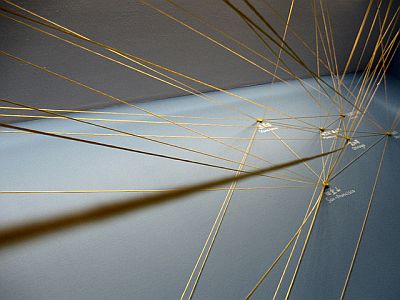Posted: July 26th, 2016 | Author: Sven | Filed under: Data Sharing, found on the net | Tags: European Commission, Horizon2020, research data management | 1 Comment »
 Yesterday, the European Commission (EC) announced an investment of 8.5 billion Euros into research and innovation in 2017.
Yesterday, the European Commission (EC) announced an investment of 8.5 billion Euros into research and innovation in 2017.
This investment follows an update to the work programme of the 8th research framework program of the European Union (better known as “Horizon 2020”).
From the perspective of the research data management, this update incorporates some important changes: The current Open Research Data Pilot will be extended so that research data sharing by default will apply to all Horizon 2020 calls covered by the 2017 Work Programme. This means that grant beneficiaries must take measures to enable third parties to access, mine, exploit, reproduce and disseminate research data underlying their scientific peer reviewed publications free of charge. Horizon 2020 beneficiaries are encouraged to also share datasets beyond these publications. Projects can “opt-out” of these provisions in case of conflicts with IPR, personal data protection, national security or other concerns. Read the rest of this entry »
Posted: July 21st, 2016 | Author: Sven | Filed under: German, Projects, Research Data | Tags: infrastructure, network | Comments Off on New countrywide RD-INF Project approved: Generic Research Data Infrastructure (GeRDI) ready to get off the starting blocks
 In my previous post, I presented some analyses and recommendations the RfII (German Council for Scientific Information Infrastructures) made for the future development and structuring of the German national landscape on research data management. For instance, the RfII found, that
In my previous post, I presented some analyses and recommendations the RfII (German Council for Scientific Information Infrastructures) made for the future development and structuring of the German national landscape on research data management. For instance, the RfII found, that
‘there is an overall absence of coordination, and current efforts often take the form of parallel, project-based initiatives. Universal access to services for data management is lacking, as the key actors at present are individual institutions and organisations, and their efforts often suffer from limited financing and/or excessive niche focus. In addition, the high staff turnover means that valuable know-how is frequently lost. Furthermore, the range of services being provided is impaired by the absence of governance mechanisms which could impart greater strategic direction.’
Currently, when scientists generate research data often the question arises where to store the data. Currently, only a handful of universities already have an appropriate infrastructure in place while for the big majority such a research data infrastructure is still missing.
Also from the perspective of a researcher who is looking for (reusing) data already available, the current state is unsatisfactory: The few research data infrastructures currently available at German universities, but also other research data centres from different subjects, are hardly linked with other data repositories and often remain data silos. Read the rest of this entry »
Posted: July 19th, 2016 | Author: Sven | Filed under: German, Report, Research Data | Tags: funding, recommendations | Comments Off on ‘Council for Scientific Information Infrastructures’ publishes recommendations on RDM structures and processes
 In June, the German Council for Scientific Information Infrastructures (RfII) has published some recommendations on determinats of future research data management and the development of corresponding infrastructures.
In June, the German Council for Scientific Information Infrastructures (RfII) has published some recommendations on determinats of future research data management and the development of corresponding infrastructures.
Because I believe that these recommendations are also of broader interest to our readers, I would like to highlight some of recommendations of the report.
But first of a all, some introductory words on the RfII: The German Council for Scientific Information Infrastructures was established in November 2014. The 24 members work in an honorary capacity and were appointed by the Joint Science Conference of the Federal States and the Federal Government of Germany for a service period of four years. The Rfll was tasked by Germany’s Joint Science Conference (GWK) with formulating broad-based recommendations for the science system in Germany as a whole.
Consequently, the recommendations presented in the report have ramifications for a variety of actors in the domains of politics and science. The Rfll is convinced that the adoption of new ways in dealing with research data as well as long-term preservation and accessibility will be a significant, common challenge for all actors in the years ahead. Read the rest of this entry »
 Yesterday, the European Commission (EC) announced an investment of 8.5 billion Euros into research and innovation in 2017.
Yesterday, the European Commission (EC) announced an investment of 8.5 billion Euros into research and innovation in 2017.
 In my previous post, I presented some analyses and recommendations the
In my previous post, I presented some analyses and recommendations the  In June, the German Council for Scientific Information Infrastructures (
In June, the German Council for Scientific Information Infrastructures (





